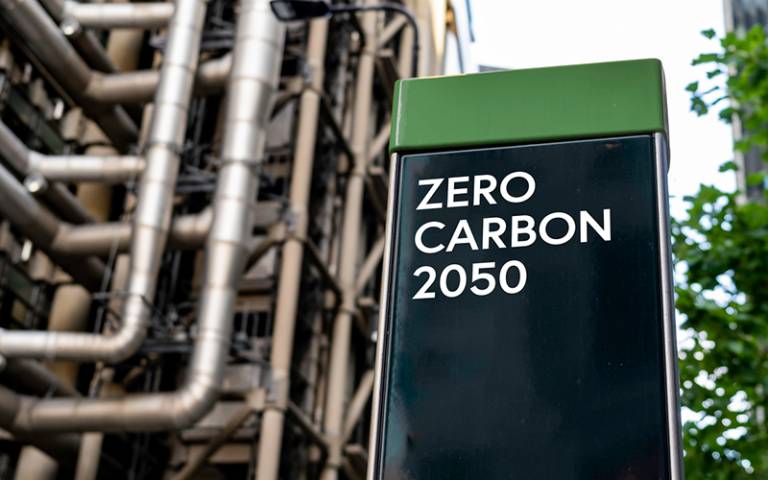Fairness and Net Zero: it’s time for the government to get serious
1 August 2023
As climate action grows increasingly politically divisive, Prof Jim Watson reviews the costs and benefits of climate action, and how policy interventions could distribute costs and benefits equitably.

The UK government’s commitment to tackling climate change has been called into question by recent events. Although the result was close, the Uxbridge and South Ruislip by-election has prompted some in government to question the speed and cost of measures to reduce emissions. This has been closely followed by a high-profile announcement about the next round of new oil and gas licenses.
There is no suggestion yet that this change of tone will lead to fundamental re-evaluation of climate goals, including the legally binding target of net-zero emissions by 2050. However, these debates risk opening up a political divide on climate action.
Unlike some other countries, the UK has had a broad political consensus on this issue. This is not only because of the increasing, strong evidence that changes in Earth’s climate are leading to severe impacts such as the wildfires in Greece. It is also because of a recognition that UK leadership has significant benefits.
The costs and benefits of reducing greenhouse gas emissions that cause climate change have always been debated. The Stern Review, commissioned by the then Chancellor Gordon Brown over 15 years ago, set the benchmark on this issue. It concluded that the costs of action to reduce emissions are significantly lower than the costs of not acting
Since then, the economic case for rapid emissions reductions has got stronger. For example, analysis for the Climate Change Committee’s sixth carbon budget by Cambridge Econometrics concluded that meeting this target would increase GDP by 2-3% over the period 2020-2050. It would also result in 300,000 additional jobs. There is also real-world experience from technologies such as offshore wind, which has experienced rapid cost falls as a result of government policies to support deployment at scale.
However, demonstrating that there are overall economic benefits to the UK is not enough. There are two important reasons for this. First, realising economic benefits often requires investment up-front – for example, in subsidies for low carbon technologies or investment in energy efficiency upgrades to homes. Second, the distribution of costs and benefits matters. Telling the public the costs or benefits of climate action as a percentage of the UK’s GDP by 2050 is an abstract message which tells people very little about it will mean for them.
As research led by environmental psychologist Nick Pidgeon has shown, public support for climate action partly depends on how it is implemented – and who pays for it. This research concluded that the public wants companies and the government to pay the most towards a low-carbon transition, as well as greater information about what the costs are, and a fair distribution of costs and benefits.
It would therefore be a huge mistake to interpret opposition to the low emissions zone in London as a reason to slow down climate change action. The government’s own regular public attitudes tracker continues to show high levels of public concern about climate change.
Instead, the response should be to get serious about the distribution of costs and benefits of such action. Grants to those on low or modest incomes so they can upgrade their cars and homes are an essential part of any policy programme. This is because many citizens can't afford to pay several thousand pounds to replace their gas boiler with a low carbon heat pump, or for the substantial additional costs of an electric vehicle. The government does some of this already. For example, the Energy Company Obligation (ECO) offers subsidies to low income households so they can insulate their homes. On a longer timescale, the market for electricity is being reformed so that the dramatic cost falls in renewable technologies are reflected in lower bills. But much more is required.
There has been a failure to consider the cumulative effect of all policies to cut emissions – and how households on different incomes will be affected. The government has been aware of the need to monitor these cumulative costs and benefits for many years, but there is little evidence of a comprehensive response. Instead, more specific and piecemeal help has been provided via policies like ECO and car scrappage schemes.
There is also a need to get serious about co-developing responses with the public rather than imposing solutions on them. There have been some very good examples of this at national and local level. Climate Assembly UK brought together a representative group of 108 UK citizens to consider how to meet the net zero target. Their recommendations covered a wide range of topics - from preferences for power generation technologies to recommendations on the decarbonisation of heating and transport. Many of these recommendations were used by Parliamentary committees to scrutinise government policies, but the government itself has not taken these recommendations seriously enough. Many Local Authorities have also set up citizens assemblies to engage people in local decision-making.
Initiatives like these need to continue so that relevant publics are involved in key decisions, and to ensure that action maximises economic and other benefits across society.
 Close
Close

